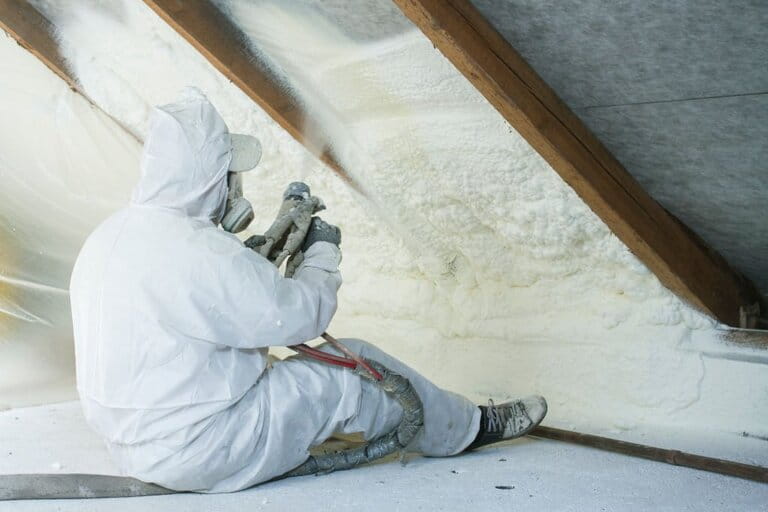Insulation is an essential aspect of any home renovation or construction project. It helps regulate the temperature, reduce energy consumption, dampen sound, and improve indoor air quality. With technology advancements, insulation materials have been greatly improved, making them more effective, affordable, and eco-friendly than ever before. Here are some insulation innovations available in the market today:
Spray Foam Insulation
In recent years, spray foam insulation has become increasingly popular among homeowners due to the high R-value and air-sealing qualities that this form of insulation offers. Insulation formed from spray foam is created by combining two chemicals, polyol resin and isocyanate, which when combined produce a foam through a reaction that causes it to expand and fill cracks and crevices.

One of the most significant benefits of spray foam insulation is its ability to provide excellent air-sealing capabilities. As the foam expands, it creates an airtight seal, preventing air from escaping or entering your home. This can help reduce energy bills by reducing heat loss or gain. Spray foam insulation also provides excellent noise reduction properties. The foam can help dampen sound transmission, making it an ideal choice for homeowners who live in noisy neighborhoods or near busy roads.
Cellulose Insulation
It is made of recycled newsprint or cardboard treated with fire-retardant chemicals. It is an eco-friendly option that is blown into attic spaces or wall cavities. Cellulose insulation is known for being highly effective at reducing sound transmission and improving indoor air quality.
Radiant Barrier Insulation
It reflects heat away from the home, making it an ideal choice for hot climates. Radiant barriers are typically installed in attics, and they work by reflecting radiant heat back toward their source, keeping your home cool and comfortable even on the hottest days.
Fiberglass Insulation
It is made of tiny glass fibers that trap air pockets, providing excellent thermal insulation. Fiberglass insulation is available in batts, rolls, and loose-fill, and is often used in walls, ceilings, and floors.
Rigid Foam Insulation
Insulation made of rigid foam has a high R-value and is frequently utilized in the construction of exterior walls, roofs, and foundations. Rigid foam insulation is a form of insulation. There are several distinct varieties of rigid foam, the most common of which are expanded polystyrene (EPS), extruded polystyrene (XPS), and polyisocyanurate (ISO). Because of its longevity, energy-saving properties, and durability, it makes for a good choice when selecting an insulating material.
Blown-In Insulation
It is a type of insulation made of fiberglass or cellulose that is blown using special equipment into wall cavities or attics. This method of insulation helps fill gaps and voids, providing an effective barrier against heat loss or gain.
Insulated Concrete Forms
It is a type of construction material used to create insulated walls, floors, and roofs. ICF consists of two layers of foam insulation with steel-reinforced concrete sandwiched between them. ICF homes are known for being energy-efficient, durable, and providing superior soundproofing.
The Importance of Hiring Professional Insulation Contractors

While there are many insulation options available, hiring a professional insulation contractor is crucial to ensure that the job is done correctly. Professional contractors like iFoam have the expertise and training to evaluate your home's insulation needs and make recommendations based on your specific circumstances. They can also help you choose the right type of insulation for your home, ensuring maximum efficiency and cost savings.
In addition, professional insulation contractors have access to the latest insulation technologies and techniques. They use specialized equipment and tools to install insulation quickly and efficiently, minimizing disruption to your home and daily routine. Proper installation is essential to get the maximum benefit from any insulation material, and professionals have the experience and knowledge to achieve this.
In conclusion
Advancements in insulation technology have led to a range of innovative insulation materials and techniques that provide homeowners with greater comfort, energy efficiency, and cost savings. Whichever insulation option you choose, it is vital to work with a professional insulation contractor to ensure that your home is insulated to the highest standards, providing maximum benefits to you and your family.













